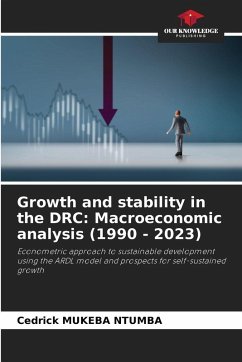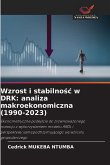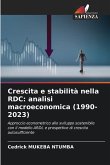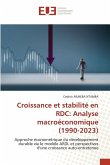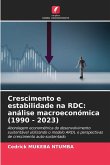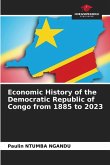This article analyzes the evolution of the DRC's macroeconomic framework over the period 1990-2023, focusing on the prospects for self-sustained growth. The ARDL model was used, due to the presence of integrated variables of order I(0) and I(1). The results of the cointegration test (Bound Test) showed an F-statistic of 6.48, well above the critical thresholds, confirming the existence of a long-term relationship between the variables studied. However, in the long term, none of the individual coefficients was statistically significant. This suggests a low structural sensitivity of GDP to conventional macroeconomic steering variables. In contrast, in the short term, the ECM model shows strong growth inertia and a significant, albeit slow, adjustment (ECM = -0.002015). These results call for ambitious reforms. The recommendations focus on macroeconomic stabilization, human capital development, economic diversification and the qualitative management of FDI. To achieve self-sustaining growth, the DRC will have to rely on coordinated, inclusive and transformative policies.
Bitte wählen Sie Ihr Anliegen aus.
Rechnungen
Retourenschein anfordern
Bestellstatus
Storno

